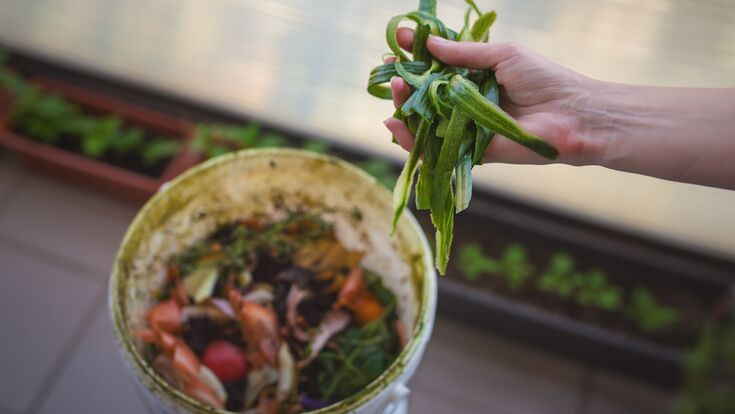Opinion : Sound management of organic waste towards a net-zero and sustainable future

When we reflect on different social issues, lifestyles and cultural practices, it is not usual to bring waste to the main picture. However, in all those topics (and many others), the materials that are thrown away are a visible part of the complex system that forms a human being – individual preferences, habits, behaviours, citizenship, wealth, etc.
Waste also reflects current production patterns, commercial strategies and distribution systems, having a direct link with the level of industrialisation and purchasing power of the local society and its individuals, who are responsible for taking the various products from the markets and stores, use them or their contents and, after an active movement, transform the remaining portion (packaging or product) into waste, thus starting a new cycle.
Waste management is a complex system involving logistics, equipment, technologies, engineering and human resources, all interconnected parts of an engine which, to function well, must be structured according to a good plan, under a good governance system and with enough funds to cover its running costs, which recur on a daily basis, giving place to a system that must be designed and implemented to deal with the different fractions of materials discharged by the individuals.
Organic waste (or biowaste) has been neglected for many years now but has been receiving growing interest in more recent years.Carlos Silva Filho, ISWA president
The waste composition varies from place to place; however, it is important to note that some fractions are always present and relevant. Plastics, paper, metals, glass and organics are the common fractions seen in waste bins all over the world. According to the World Bank (2018), organic waste corresponds to an average of 44 per cent of global waste generation, followed by paper/cardboard (17 per cent), plastics (12 per cent), glass (5 per cent) and metals (4 per cent). It is important to highlight that organic waste can reach 50 to 60 per cent of the total waste generation in developing regions.
If, on the one hand, organic waste corresponds to almost half of total waste generation, on the other it does not receive proportional attention or priority focus. For example, plastic waste is a hot topic at the moment. Several reports, research and legislation are dealing with plastics, and the United Nations Environmental Assembly approved a resolution one year ago to start the process of negotiating a legally binding instrument on plastic pollution. The process started in December 2022 and it is estimated to last for two years, with meetings being held to elaborate the basis of the treaty.
Back to the largest fraction: organic waste (or biowaste) has been neglected for many years now but has been receiving growing interest in more recent years. This interest is related to many aspects, but mostly to greenhouse gas emissions, hunger and food security. According to the most recent estimates, waste is the third largest anthropogenic source of methane emissions (organic waste is the main contributor) and globally around one third of the food produced for human consumption is lost or wasted.
Considering those numbers, one can easily conclude how urgent it is to set sound management of organic waste as a priority for governments, for the food industry, for commercial businesses and for each individual living on this planet. Also, the triple planetary crisis affecting the future of the planet – pollution, climate change and biodiversity loss – will be alleviated if we succeed in reducing biowaste generation and improve its recovery and valorisation.
It is a challenge, but also an opportunity to be fully exploited and further developed, towards a net-zero and more sustainable future. This is what we are very much looking forward to, and it is also the guiding theme for the ISWA 2023 World Congress, which will take place in Muscat, Oman. The call for papers is open and we invite all our readers to visit the website – iswa.org – for more information.

